Tribeca 2020: Narrative Shorts Part 2
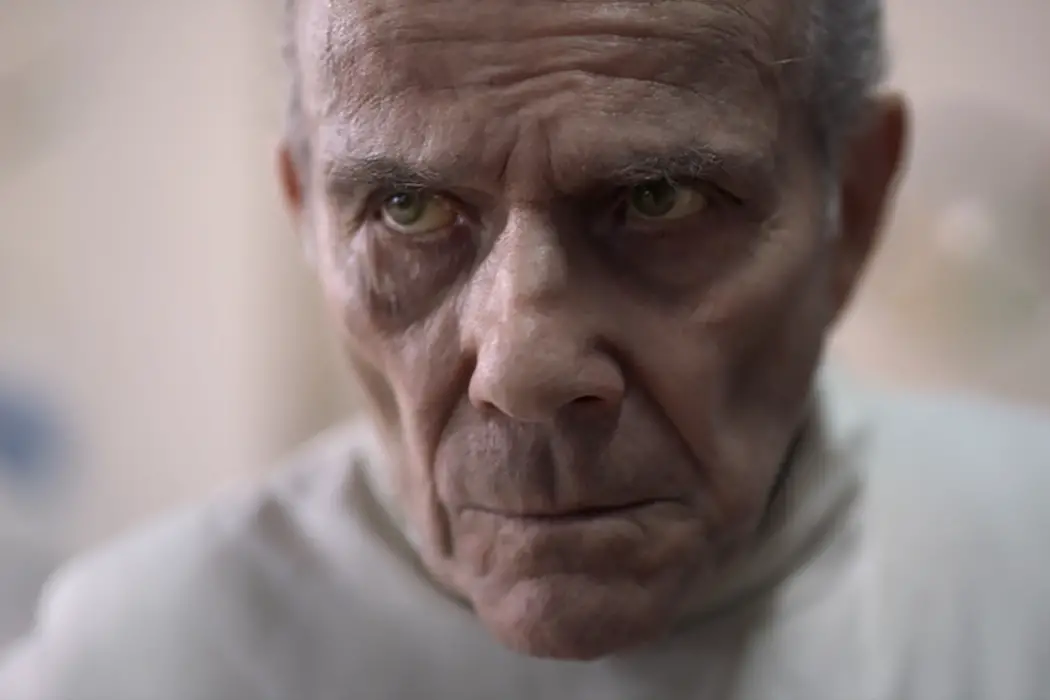
Stephanie Archer is 39 year old film fanatic living in…
Let our coverage of the Narrative Shorts of the 2020 Tribeca Film Festival continue!
The Last Ferry From Grass Island (Linhan Zhang)

Where the short film Cru-Raw looked at the sacrifices of apprentices to achieve their goals, The Last Ferry from Grass Island, from director Linhan Zhang, examines the moment when an apprentice surpasses their master. The short is a slow burner, savoring the attention of the audience as much as its main character is savoring the final moments of his life.
The aspect ratio of this short film Zhang shoots with instantly creates a vintage feeling; the ways of the past resurfacing to showcase to the future. The tight and constricted framing also immediately craft an environment of confinement, contrasting to the openness of the water and the freedom he seemingly enjoys. The end is coming and there is nothing he can do to stop it.
As he prepares dinner for Ah Ma (Yee-Yee Young), his would-be assassin arrives, silent as the night. Though as Xiaoma (Yang Wang) arrives to make her kill, tasked to carry out her mission before the last ferry departs, there is a hesitation, one imposed by herself and from Ah Hoi (Tai-Bo). As they sit down to eat, viewers will come to release this is not only his last meal, but the last meal shared between apprentice and master.
There is a slow caress The Last Ferry From Grass Island builds to the end, showcasing the hope we all have when the end comes for us. As he cleans the dishes and ensures his Ah Ma she will be well cared for, he has the opportunity to place everything in his life in order before he welcomes the end – before he passes on the torch – giving his apprentice one final lesson in life.
The Light Side (Ryan Ebner)
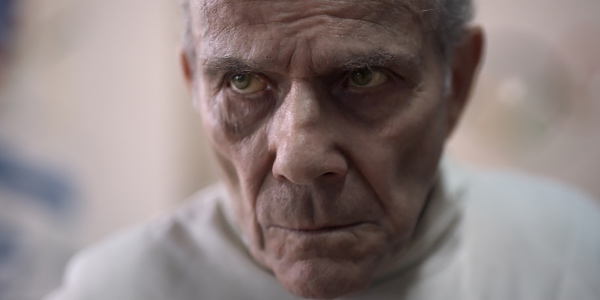
While The Light Side was the shortest of the narratives, it wasn’t any less effective. An amazing and cute little short, The Light Side, from director Ryan Ebner, takes a look at an aging Sith Lord (Jospeh Ragno) as he navigates his later life, attempting to assimilate retirement and the good side.
As he walks the city’s streets, he opens up to the audience, exposing his newfound vulnerabilities. He never truly understood being alone, the feeling of disconnectedness. While his life before was “exhilarating” – I mean he was the destroyer of worlds – he is attempting to embrace what the next chapter of his life holds – though not without its difficulties.
Employment is a challenge, not just in finding a suitable job but also in keeping with his new way of life. Try as he may though, the dark side always creeps back in. That is until he finds like-minded folk that cares for him as he is now and not what he use to be. Their acceptance into the fold gives him newfound strength and resilience. He can do this – live a life of good while fondly remembering the days of old.
I found myself rolling with laughter as the old man utilizes his Kylo Ren lightsaber to cut through metal and weld new and useful creations. Purchasing cat food at a local convenience store for the feline friend he has waiting for him at home. Each of these delightful details giving an interesting spin to the saga we have all come to know and love, but also finding a way to speak to a population too easily disregarded in reality.
Many times, especially at a certain age, people are regarded as too old. Too old to start new careers, too old to work at all. We express our understanding of their shortcomings whatever they may be, yet we rob them of their chance to prove themselves, to still live. Here, our former Sith Lord is 184 and struggling to find purpose and assimilate to society. Too often, art imitates life.
Look At Me (Nika Fehmiu)
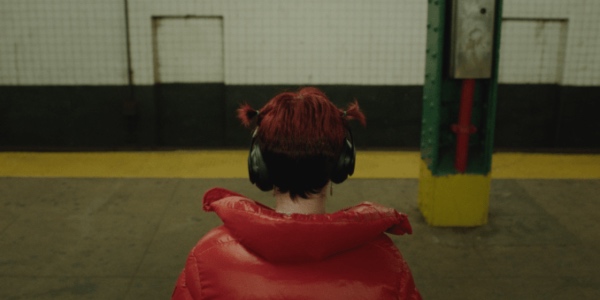
Do we ever truly look at a person when we pass them on the street? On the subway platform? Look at Me, from director Nika Fehmiu, examines the disconnect of people in today’s society – whether it be through our complete saturation within technology or our ecocentric lifestyles that consume our attention.
It is interesting that this is the premise of Look at Me, as the short begins not with someone being distracted, but rather someone who is aware. Seeing a young man (Connor Vasile), incapacitated, drooling, and foaming at the mouth, a young woman (Hadley Robinson) makes her way over examining and assessing the situation. As he does not respond to her inquiries of concern, she calls 911, missing her train in order to stay behind to ensure the young man receives the help he so desperately needs.
Though her willingness to sacrifice her time goes only so far as a second train arrives, she decided to board, leaving the man to wait alone. As the train pulls away, she gives herself to her meditation, internally justifying what she has just done. It is eye-opening how easy it was, to not only make the decision but to follow through.
Flashback to the beginning of the evening when the boy leaves home to head to a local party, his mother’s request to look her in the eyes the last true look he receives for the remainder of the evening. From here, his night descended into drunken antics, his behavior followed up by abandonment from his friends – who don’t want to risk ruining their Uber rating or travel to Queens to ensure he gets home.
Snapped back to present time, a young woman (Juliette Alice Gobin), engulfed in her phone and the image she wishes to put out in the world, and everyone on the platform fails to notice the drunk and stumbling man falling towards the tracks as a train approaches. There is a sharp reality that is presented, a dark image painted of the loneliness of New York City and its citizens, a city where you have no one but yourself to look out for.
Prelude (Tsubasa Matsumoto)
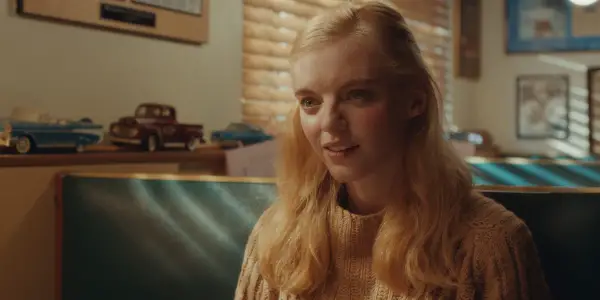
Prelude, from director Tsubasa Matsumoto, is a cosmic look at the creation of life, a surreal experience that has you questioning various facets of life and the world around you. How important are you really? While the numbers of humans are growing, do we keep getting smaller? Are we truly that unique?
The last question is the one that resonates the most. Are we truly unique? We are all aware that somewhere in the world, we have a doppelgänger, but what if there is not only someone who looks like you, but also acts like you. What if there is someone doing exactly the same thing as you at the same time somewhere in the world. Compounding further, could all the moments and memories of a life that we hold so dear be nothing more than emotional attachments? That these “unique” experiences were shared by others, mirror images continuing through life in parallel – never meeting but never broken.
Prelude is a deep and philosophical short that asks viewers to step outside of their ecocentric lives, and examine the possibility of lives shared rather than our own individual existence. As the short concludes, it points out, that before birth we were just a sperm and an egg. The fertilization of eggs happening at the same time around the world. Who’s to say birth breaks the cycle?
Soup (Inga Sukhorukova)
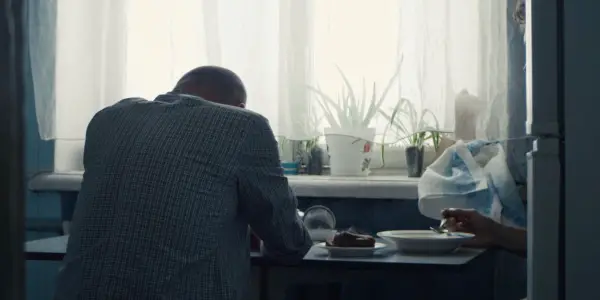
Can a bowl of soup heal wounds? That is what the short film Soup, from director Inga Sukhorukova, asks the audience to consider. As a young man begins a career opening a new restaurant, his latest venture gives him the chance to head to Switzerland, leaving his home for good. Though not without a final meal with his father.
From the moment he arrives, the relationship between father and son screams through the silent halls of the apartment, the father dictating everything the son should do upon entering the home, the son quietly abiding. Offering his son a warm bowl of soup, they struggle to find anything to discuss. Each time the awkward vail of silence falls around them, the son asks what ingredients his father used to make the soup.
As his son continues to default to the deconstruction of the soup, his father becomes increasingly agitated with their inability to talk and connect – that his son’s only means of conversation is the soup. As the quiet tension between them builds, it finds its explosive moment shortly after the son announces he is leaving, turning his attention back to the soup. “The soup is made from shit, you were made from shit” his father yells. Waiting patiently for his father to return from his outburst, they finally both settle, eating quietly together one last time.
There is a deep sadness in watching this brief interaction. A son biding his time before his final escape can occur, while a father swells with regret and resentment. While there is little backstory given for both, there is plenty to leave for the imagination. The heartbreak in knowing that something – or someone – drove these two apart, and that nothing can make them whole again.
System Error (Matt Vesely)
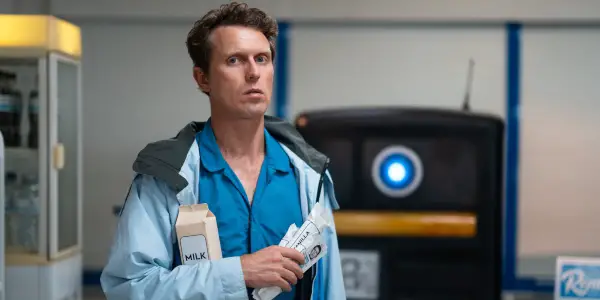
System Error, from director Matt Vesely, is a cute little short based 54 years after the arrival of advanced robot technology. Humanity is no longer alone and everything has been reduced to a simple ease of function. Everyone wears the same clothing, the items in the store wrapped in rigid and plain wrapping. Bright colors have been drained to a dull palette, leaving everything feeling flat and monotonous. With an atmosphere set by the repetitive elevator music, the little convenience store is cared for by a stationary robot. His speech and even design fit the bland layout around him. Enter Sid (David Quirk).
While viewers are not given much knowledge about Sid, he seems like a kind and lighthearted fellow. Quipping a joke at the robot at the conclusion of their transition, he and viewers find the robot is not capable of humor or even computing what a joke means (service units do not laugh). But in a sea of monotony, Sid becomes the spark that lights creativity and determination within the robot, who as we find out is named George (Nick Nemeroff). With each day that follows his interaction with Sid, George attempts to reprogram himself, developing his ability to not only understand jokes but to deliver them as well.
As this strangely personable robot begins to override his programming, his inner self begins to haunt him, telling him he is doing wrong, that the preserved improvements is actually him malfunctioning. While he gives into the voice within, believing this to be true, he begins to seemingly self destruct. George is a wonderful personification of how we have a tendency to see ourselves. Humans find what they believe is an improvement to themselves, striving to reach new levels in their lives. Yet, we all have an inner voice, the doubt that creeps in. Can we do this? Will we ever succeed? Many times, we are the villains behind our own destruction, ourselves the biggest deterrent from success.
With that in mind, System Error also takes a moment to acknowledge that many of our accomplishments and self-improvements are not done alone. Many times we achieve them through the support of those around us. Teachers loved ones, and friends are there to give their knowledge, lend a hand, and even to just listen. The journey of self-improvement may feel like a long lonely road, but if you look closely enough, you were never truly alone.
Tapes (Dara Katz and Betsy Kenney)
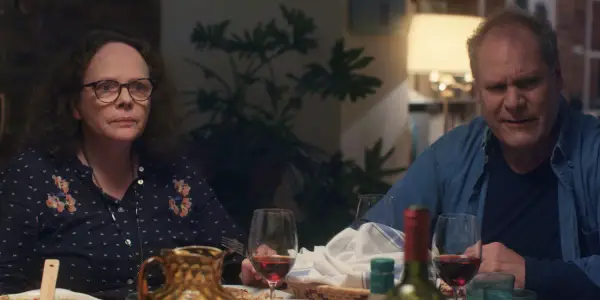
All families fight. There is no one out there that can say they have never fought with their family. Yet, for every argument, there is always a catalyst. In the case of Tapes, from directors Dara Katz and Betsy Kennedy, it is literally that – a set of old cassette tapes. Found in a box of old items given to her by her father, a young woman discovers a set of tapes, an audio documentation of a clinical trial her parents once participated in. On the tapes, she hears her mother call the baby within her womb a parasite, as well as her resentment of the pregnancy. Doing the math, she discovers the baby her mother (Maryann Plunkett) is talking about is her.
As she is taking in the gravity of what she has heard on the tapes, there is a resentment brewing, a break down of trust in her two parents that up until now have always shown love and adoration. With each step bringing her closer to family dinner, the examples pile up validating her newfound claim that they never wanted her. While she attempts to maintain her composure, she finally snaps at dinner, confusion on who brought the wine pushes her past the limit.
As her mother and herself exchange blows, a comedic element of a life doula tries to mediate the argument, attempting to allow a safe space for feelings, but keep the tempers at bay. It is not until her mother and father reveal that the baby being discussed on the tape was miscarried do things come to a crashing halt. While the subject matter may not relate to many, the family dynamics that are juggled from start to finish will be one of the most real and relatable experiences of the shorts this year. Where you see the break down of family relationships, you see them instantly heal and rekindle.
Toto (Marco Baldonado)
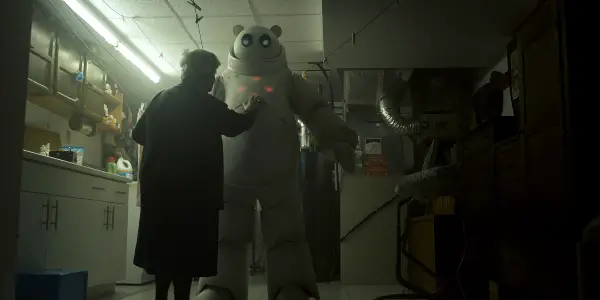
One of the cutest and strangely heartbreaking shorts of the Tribeca season, Toto, from director Marco Baldonado, packs one hell of a punch. If you don’t leave your viewing with a sense of frustration and yearning, Toto has not down its job. Toto looks at the introduction of technology to past generations, contrasted to the sometimes ignorant and careless nature of the future, all through the surprisingly emotional encapsulation that is Toto.
Living alone, an elderly woman receives a knock at the door, a package larger than life delivered. Upon opening, she discovers a giant robot waiting to become a part of her life. She embraces the robot, assembling and plugging in the battery switch. While she seems less than thrilled to have it, a connection starts to develop, the robot’s AI technology personalizing itself to Rosa (Rosa Forlano). Learning Italian and how to make spaghetti, Rosa receives the attention to culture and language in a way that no living human has been able to satisfy in some time.
What viewers will quickly learn is that the spaghetti she has been making, from scratch no less, is for her granddaughter who is to spend the afternoon with her. Where Toto embraced her lifestyle, her granddaughter is lost within hers. She does not want the spaghetti her grandmother has made, she has not learned the language her grandmother speaks – the robot translating – and she does not want to spend the time with her, preferring her phone instead. As Toto’s battery begins to die, the young granddaughter brings the machine downstairs to be charged. With little regard to her grandmother’s wishes, she performs an upgrade, ignoring the warning it will erase the robots files (i.e memories).
I found myself fighting a tear as the granddaughter leaves, Rosa seemingly comforted by the sight of her newfound friend – a friend that no longer remembers her. Toto no longer speaks Italian, knows Rosa’s name, or how to make spaghetti. Toto must be retaught; Rosa unwilling to embrace the technology any further. As Rosa settles into her recliner, Toto waits patiently in the background, his battery slowly draining.
There is such sadness as the robot’s battery begins to drain. While he is an inanimate object, he will most likely never be utilized again. An elderly population not as equipped to handle technology as their younger counterparts become all too real. There is a personification of the generational gap in Toto, as well as a shape of abandonment that Toto and Rosa share in more ways than one.
For more information about this year’s Tribeca programming, click here.
Does content like this matter to you?
Become a Member and support film journalism. Unlock access to all of Film Inquiry`s great articles. Join a community of like-minded readers who are passionate about cinema - get access to our private members Network, give back to independent filmmakers, and more.













